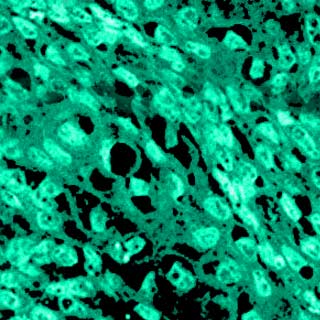
Apparently, scientists across the world seem to be searching for a means to prevent the spread of cancer also known as metastasis which is presumed to be one of the major reasons of death from cancer. It was noted that the tumors which do not spread seem to produce a protein called prosaposin. Supposedly, prosaposin seems to influence the invention of other proteins which may block this procedure and thereby aid in preventing metastasis.
It was noted that the prostate and breast tumors which did not spread, seemed to emit a huge quantity of the prosaposin protein. On the other hand, it is believed that the metastasis tumors may possibly secrete a less amount of this particular protein.
“Prosaposin, or derivatives that stimulate p53 activity in a similar manner in the tumor stroma, might be an effective way to inhibit the metastasis process in humans,†says Dr. Randoph Watnick, assistant professor in the Vascular Biology Programme at Children’s Hospital Boston. “”While we may not be able to keep patients from getting cancer, we can potentially keep them metastasis-free.â€
Cancer experts were believed to have recently revealed that a few tumors may discharge proteins. These proteins are in turn believed to travel to the various organs via blood, where they perhaps plan the site for the cancer cells to form new tumors.
For the purpose of the research, experts apparently introduced mice to highly metastasis tumor cells and the prosaposin protein. The mice were injected with these factors, so that the experts could examine the effect of this protein on them.
Through these findings, the experts were believed to have found that the additional inclusion of prosaposin may have brought about an 80 percent decline in the formation of new cancers in the lungs. It was also observed that this protein may have blocked them completely from developing in the lymph glands. The survival time also seemed to have been greatly increased. This was evidently observed in the mice given this protein, which seemed to have lived 30% more than the one’s not provided with this protein.
The experts were also known to have discovered that prosaposin could function by controlling the p53 also called the “tumor suppressor†gene within the tissue surrounding the tumor. It was believed that p53 may in turn arouse an inhibitor of blood vessel growth called thrombospondin-1.
It is believed that these findings may possibly be of great help in the future in stopping cancers from spreading.
The findings of this research have been published in the Proceedings of the National Academy of Sciences.
